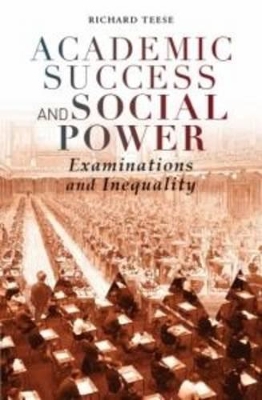International comparisons show that Australia's high ranking comes at the cost of persistent inequality and social segregation of students. The 'lucky country' is a rich country, but its school system is divided into fortified and exposed sites. An inequitable and dysfunctional funding regime (recently reviewed by the Gonski committee) has entrenched disadvantage over many years. But this is only part of the explanation. Academic Success and Social Power shows that inequality owes as much to the hierarchy of the curriculum as to the hierarchy of schools that deliver it. Richard Teese examines the curriculum of English, chemistry and mathematics over fifty years from the end of the Second World War. His book explains how the design and assessment of these subjects favoured young people from educated homes, while the cultural and professional resources of schools in poor areas were too limited to offset home disadvantage. Thus, while successive reforms of curriculum raised intellectual standards, public policy and social conditions undermined access to these standards. This enlarged edition of Academic Success and Social Power contains new chapters on the place of ancient and modern languages in the academic curriculum and their growth and decline over the post-war period.
- ISBN13 9781925003123
- Publish Date 1 September 2013 (first published 10 September 1996)
- Publish Status Active
- Publish Country AU
- Imprint Australian Scholarly Publishing
- Format Paperback
- Language English
